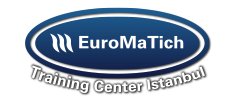Overview:
Introduction:
Maintaining a high level of productivity in today’s successful organizations takes work and continuous learning in a variety of management skills and techniques. To be successful in daily work tasks, knowledge, and skills in management techniques must be learned, practiced, and implemented. People in all types of organizations find themselves needing to find more productive methods of planning work and tasks, setting appropriate goals, using good interpersonal skills, and using effective means of making decisions. A focus on using productive practices allows for effective and efficient management of work and making changes in the organization. The purpose of this comprehensive program is to assist in furthering one’s ability to set goals, plan work and tasks, manage time, make good decisions, and work more productively with others. The program offers a range of practical and highly effective techniques and tools that can be implemented in any workplace. It will build confidence in one’s ability, increase the ability to lead people, and build the skill to apply management concepts and techniques. One week of this seminar focuses on the concepts, principles, and challenges of the task and work planning, with additional topics on time and stress management and how human interaction skill impacts our effectiveness. The second week establishes a focus on key management skills such as setting goals and objectives, establishing performance standards, decision-making processes, and change management
Course Objectives:
At the end of this course the participants will be able to:
- Distinguish between the proactive/strategic approaches to managing training and the traditional/ reactive approaches.
- Use appropriate methods to identify training needs.
- Design and conduct training needs analysis.
- Analyze the components of human performance and determine how managers and/or corporate culture may enhance performance.
- Evaluate the effectiveness of training.
Targeted Audience:
Team leaders, supervisors, or anyone who is an acting or aspiring leader in any sector of industry and/or business, including the service industry. The course is appropriate for those who desire to learn effective management skills and techniques to be able to better manage their work, as well as the work of others. Persons who are business planners, technical professionals, and engineers moving into management positions would find this seminar valuable.
Course Outlines:
Unit 1: The Proactive and Strategic Role of Training:
- The Value of Training in the Era of Intellectual Capital
- 10 Approaches Linking Training to Strategy
- Partnering with Line Managers
- Marketing Training within the Organization
- The How-How Method
Unit 2: Identification of Training Needs:
- The Training Cycle
- Indicators of Training Needs: Present and Future
- Objectives of Training Needs Analysis
- Whose Responsibility Is It?
- Methods and Techniques
Unit 3: Designing and Conducting a Training Needs Analysis:
- The TNA Process
- Selecting the Appropriate Methods
- Analyzing the Data
- Sorting the Findings
- Making Recommendations
- Competency-Based TNA
Unit 4: Improving Human Performance:
- Ability, Motivation, and Opportunity: The Role of the Training Manager / Coordinator
- Developmental Activities: From Projects to Learning Centers
Unit 5: Evaluating Training:
- Significance of Learning Objectives
- Components of an Objective
- Writing Learning Objectives
- Linking Objectives with Evaluation
- The Four Levels of Evaluation
- The Return On Investment (ROI) Model


